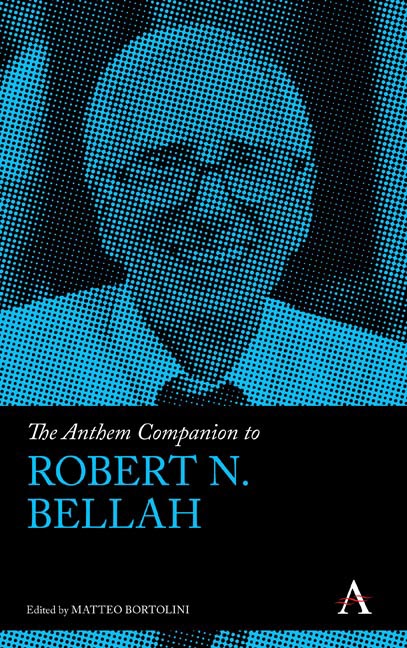Book contents
- Frontmatter
- Contents
- Notes on Contributors
- Introduction: On Being a Scholar and an Intellectual
- Part 1 Major Themes
- Chapter 1 Dialogues between Area Studies and Social Thought: Robert Bellah's Engagement with Japan
- Chapter 2 Civil Religion and Public Theology
- Chapter 3 Out of the Deep Past: The Axial Age and Robert Bellah's Project of Social Criticism
- Part 2 Yesterday and Today
- Part 3 Unexpected Masters
- Index
Chapter 2 - Civil Religion and Public Theology
from Part 1 - Major Themes
Published online by Cambridge University Press: 06 July 2019
- Frontmatter
- Contents
- Notes on Contributors
- Introduction: On Being a Scholar and an Intellectual
- Part 1 Major Themes
- Chapter 1 Dialogues between Area Studies and Social Thought: Robert Bellah's Engagement with Japan
- Chapter 2 Civil Religion and Public Theology
- Chapter 3 Out of the Deep Past: The Axial Age and Robert Bellah's Project of Social Criticism
- Part 2 Yesterday and Today
- Part 3 Unexpected Masters
- Index
Summary
In seeking to make sense of modernity in the classical tradition of sociology as a field, Robert Bellah's work spans the social sciences and comparative cultural inquiry to embrace the global diversity and coherence of religion as the key to culture across civilizations and epochs within the framework of human evolution. It engages the West, and America in particular, as problematic cases that can only be understood in the broadest comparative perspective on human culture unfolding in history. Seen from this standpoint, the dialectical coherence of civil religion in the moral argument of public life in modern societies runs through the development of its formulation over the course of Bellah's scholarship. This begins in print in 1967 with “Civil Religion in America,” defined in Durkheimian terms as a collection of beliefs, symbols and rituals with respect to sacred things and institutionalized in a collectivity, and then defended as “the subordination of the nation to ethical principles that transcend it and in terms of which it should be judged,” not idolized. Religion forms the womb of all civilization and gives birth to the moral order and community of every society. It does so in symbolic and practical forms that both underlie and overarch the differentiation of religious, political, economic and familial institutions in the evolution of modern societies, enabling their moral judgment as well as their justification.
In “Religion and the Legitimation of the American Republic” in 1978, Bellah elaborates the critical interplay of civil religion and public theology in the free exercise of religion in America, institutionalized in ways that mediate but never resolve the tension between civic republicanism and constitutional liberalism in its ambiguous political identity. Seen as a cultural dimension of depth, civil religion frames modes of moral discourse and imagination to enable coherent cultural conflict in successive times of trial, which give rise to contrasting public theologies that contest the meaning of civil religion and reshape it in turn. This dialectical logic extends to the model of cultural conversation and argument across multiple moral traditions seen as continuities of conflict in Habits of the Heart in 1985 and Bellah's later work, by contrast to construing civil religion as a unitary moral foundation once fundamentally fixed and then fragmented by culture wars.
- Type
- Chapter
- Information
- The Anthem Companion to Robert N. Bellah , pp. 63 - 80Publisher: Anthem PressPrint publication year: 2019



